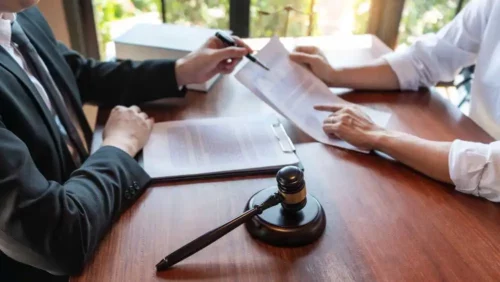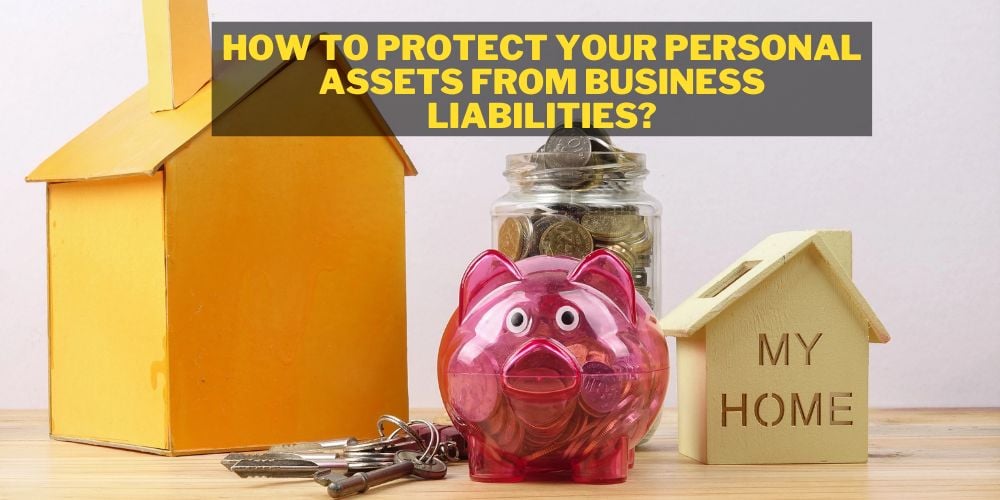Navigating the complexities of protecting personal assets from business liabilities is crucial for entrepreneurs.
This guide provides essential insights and actionable strategies on how to protect your personal assets from business liabilities.
Understanding Personal Assets and Business Liabilities
Personal assets include any property or investments owned by an individual, such as homes, savings, and stock investments.
On the other side, business liabilities encompass debts or obligations a business owes, which could range from loans to payment dues for services rendered.

There are typical scenarios where personal assets might face risks. For instance, if a business incurs debts it cannot pay or faces legal action, personal assets might be targeted for compensation if proper protection structures are not in place.
How To Protect Your Personal Assets From Business Liabilities?
Choosing the right business structure is fundamental in protecting personal assets.
Sole Proprietorships offer no separation between personal and business assets. In partnerships, liability can still extend to personal assets, especially in a General Partnership.
However, forming a Corporation (S-Corp and C-Corp) or a Limited Liability Company (LLC) can provide a shield for personal assets.
These structures view the business as a separate legal entity, limiting your personal liability to your investment in the company.
Legal Tools and Practices to Protect Assets
Creating a clear separation between personal and business finances is essential. It starts with maintaining separate bank accounts for personal and business use.
This distinction is crucial during legal examinations to prove that personal and business finances are not intertwined. Insurance serves as a vital barrier.
Professional liability insurance and errors and omissions insurance can protect against specific claims, ensuring that the business’s financial burdens do not spill over into personal assets.
Another strategy involves utilizing estate planning and trusts. By placing certain personal assets into trusts, you can safeguard them from being considered available for business debts.
The Role of Legal Advice
The role of legal counsel cannot be overstated when aiming to protect personal assets from business liabilities. Early collaboration with a business attorney is an investment in asset security.

An experienced lawyer will not only navigate you through the optimal structuring of your business entity but also craft robust contracts tailored to minimize your personal liability.
This strategic legal planning forms a defensive moat around your personal estate, ensuring that your financial exposure is limited and your investments are insulated from potential business encumbrances.
Pro Tips for Maximizing Protection
To maximize the protection of your personal assets from business liabilities, regular financial reviews are indispensable.
By frequently assessing your business’s financial health and potential liabilities, you can identify and address risks before they become serious threats.
Additionally, staying abreast of legal and regulatory changes is crucial. The business landscape is constantly evolving, and new laws or regulations can significantly affect your liability exposure.
By keeping informed and adapting to these changes, you ensure that your business practices remain compliant and your personal assets are safeguarded against unforeseen liabilities, maintaining a strong defense for your financial well-being.
Real-Life Examples and Case Studies
Consider the story of a small business owner who failed to separate personal and business finances properly.
When the business faced legal issues, the owner’s personal assets, including their home, were at risk.
Conversely, a business that was structured as an LLC and had clear financial and legal boundaries faced a similar issue but protected the owner’s personal assets from any claims.
Frequently Asked Questions
What is the simplest way to protect personal assets from business liabilities?
Creating a legal separation between your personal assets and business operations, preferably through business structures like LLCs or corporations, is one of the simplest strategies.
How often should I review my business structure for optimal asset protection?
Reviewing your business structure annually or whenever significant changes occur in your business or the legal environment is advisable.
Can personal assets be protected in the case of bankruptcy?
Yes, by using the correct business structure and legal tools, such as trusts, it is possible to protect personal assets in bankruptcy scenarios.
Conclusion
Protecting your personal assets from business liabilities is essential for any entrepreneur.
By choosing the right business structure, such as an LLC or Corporation, and adhering to practices that clearly separate personal and business finances, individuals can significantly reduce their risk.
Utilizing legal tools like insurance and trusts, alongside regular consultations with legal professionals, further fortifies this protection.
Ultimately, the key to safeguarding personal assets lies in proactive planning and ongoing diligence, ensuring that your personal financial health remains secure even as your business navigates its challenges and liabilities.


 Tags:
Tags:










